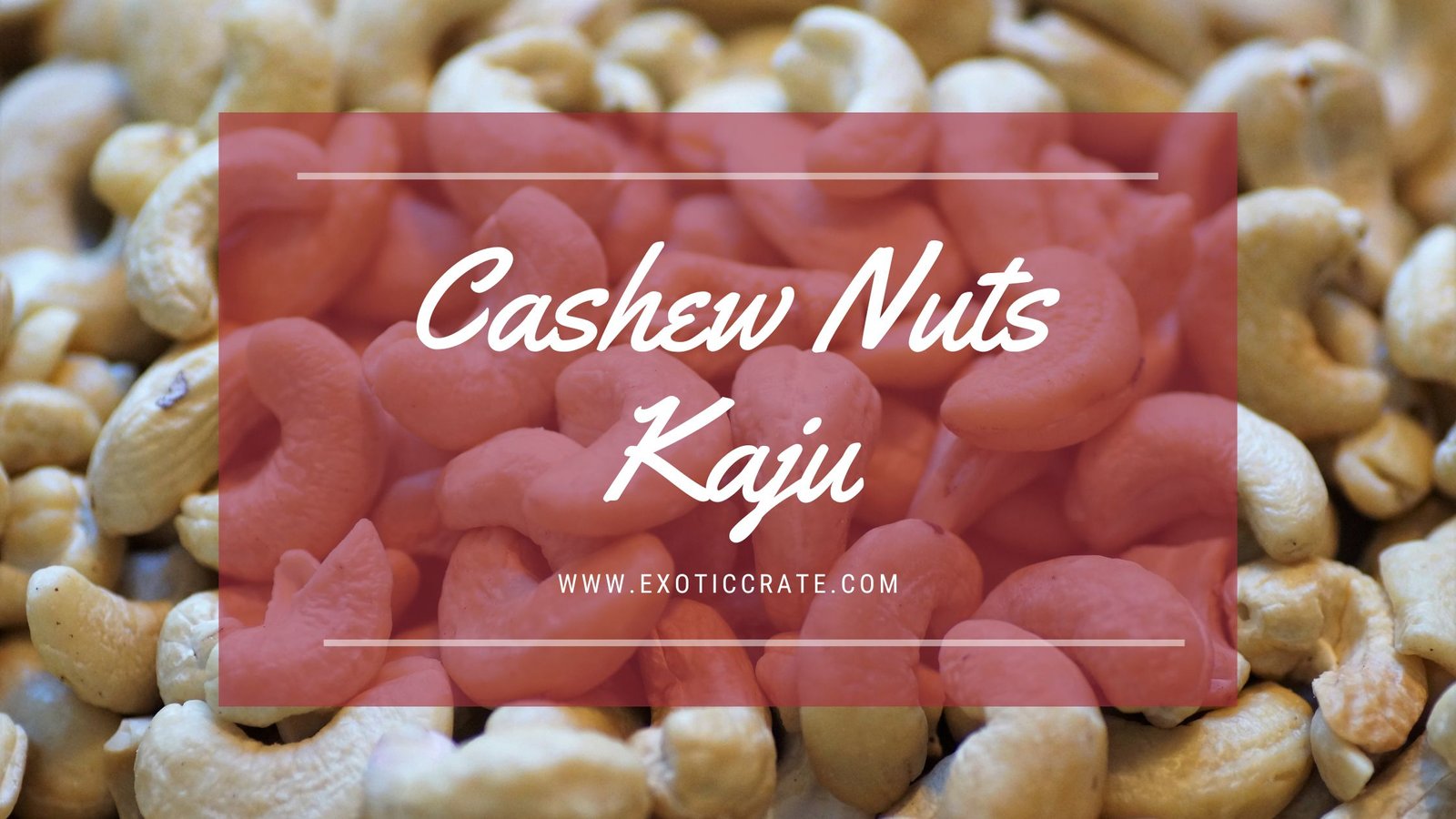Cashews — known as Kaju in India — are more than just a tasty snack. They’re a symbol of richness, celebration, and health. Whether added to biryanis, ground into gravies, or simply roasted and salted, cashews hold a special place in Indian households and commercial kitchens alike.
But behind the creamy flavor and buttery texture lies a fascinating story of cultivation, nutritional power, and an ever-expanding market demand. If you’re a buyer, wholesaler, or simply someone who loves to snack smart — understanding the journey of cashew nuts can help you appreciate why they’re such a valuable food item.
The Journey of Cashew: From Tree to Table
Cashew nuts come from the cashew tree (Anacardium occidentale), a tropical evergreen native to Brazil but now widely cultivated in India, Vietnam, and parts of Africa. In India, states like Kerala, Goa, Maharashtra, Odisha, and Andhra Pradesh are key producers.
What many don’t realize is that the cashew nut is actually the seed of the cashew apple, a pulpy fruit that’s typically discarded or processed into juice or alcohol. The seed (what we eat) is encased in a hard shell containing caustic oil, which is toxic. That’s why cashews are never sold raw with shells — they’re steamed, roasted, and processed before reaching you.
Why Cashew Is So Popular in India
Cashew is one of India’s favorite dry fruits, and for good reason. Here’s why it’s such a hit:
- Flavor: Rich, creamy, and slightly sweet.
- Versatility: Can be eaten plain, roasted, salted, sweetened, or used in curries, sweets, and bakery products.
- Prestige: Often associated with festivals, gifting, and celebrations.
- Health appeal: Rich in healthy fats, plant-based protein, and essential minerals.
From luxurious wedding mithai to modern energy bars, cashews bridge tradition and trend with ease.
Health Benefits of Cashews
Cashews are not just tasty — they’re nutrient-dense and support a healthy lifestyle when eaten in moderation.
- Heart Health: Cashews contain healthy monounsaturated fats that can help reduce LDL (bad cholesterol).
- Rich in Magnesium & Zinc: Important for bone health, nerve function, and immunity.
- Good for Brain Function: Healthy fats and vitamins like B6 support cognitive performance.
- Supports Weight Management: Despite being calorie-dense, the protein and fat content in cashews can help keep you full and reduce overeating.
- Skin and Hair Benefits: Nutrients like copper in cashews help maintain healthy, glowing skin and strong hair.
Cashew Grades and Types
Cashews are classified based on size and shape, especially in the wholesale and export markets. Here are some common types:
- W180: “King of Cashews” – the largest and most expensive.
- W210/W240: Premium large whole cashews.
- W320: Most popular grade for everyday use.
- W450: Smaller whole cashews – cost-effective for bulk use.
- Splits & Broken Cashews: Used in sweets, gravies, and snacks.
Buyers often choose based on their end-use – whether for retail packaging, gifting, confectionery, or food manufacturing.
How Cashews Are Used in Indian Cuisine
You’ll find cashews in a wide range of Indian recipes, including:
- Kaju Katli – a classic Diwali sweet made from ground cashews and sugar.
- Shahi Paneer and Korma Curries – where cashew paste creates a creamy, royal texture.
- Pulao and Biryani – garnished with fried kaju for a crunchy bite.
- Halwas and Barfis – flavored or topped with cashews for richness.
- Trail Mixes and Healthy Snacks – often paired with almonds and raisins.
Modern recipes also include cashew cheese and vegan cashew milk, making them a hit among health-conscious consumers.
The Indian Cashew Market: A Global Player
India is both a top consumer and a leading exporter of cashew nuts. According to industry reports, India processes over 1.6 million metric tonnes of cashew annually. The growing demand for plant-based snacks, premium gifting products, and clean-label food ingredients has only increased cashew consumption in both domestic and international markets.
For B2B buyers, this means that sourcing cashews from trusted suppliers with good processing practices, FSSAI/ISO certifications, and reliable logistics is essential.
How to Choose the Right Cashew Supplier
Whether you’re a food manufacturer, dry fruit wholesaler, or corporate gift buyer, the quality of your cashew nuts can define your product’s success. Look for:
- Product consistency across batches
- Clean and hygienic processing methods
- Transparent grading and labeling
- Competitive pricing with bulk options
- Custom packaging and branding support
Partnering with a supplier who understands the market and prioritizes quality can give your brand an edge in the crowded food and wellness sectors.
Conclusion
Cashews are more than a snack. They’re a symbol of indulgence, nutrition, and heritage — all in one small nut. Their versatile flavor, health benefits, and culinary flexibility make them a must-have for homes, restaurants, and food brands alike.
As India’s dry fruit and health food market expands, cashews will continue to dominate in premium gift boxes, gourmet dishes, and healthy lifestyle products. Whether you’re enjoying them as part of a festive thali or blending them into your morning smoothie, one thing is certain: cashews are here to stay.
If you’re looking to buy high-quality cashews — for retail, gifting, or bulk orders — choosing a reliable supplier ensures freshness, consistency, and customer satisfaction every time.
FAQs About Cashew (Kaju)
Q1: Can cashews be eaten raw?
Technically no. Raw cashews are toxic due to urushiol in their shells. What you buy as “raw” cashews are steamed and safe to eat.
Q2: Are cashews good for weight loss?
In moderation, yes. They’re high in healthy fats and protein, which helps with satiety. Overeating them, however, can add calories.
Q3: What’s the best way to store cashews?
Store in an airtight container in a cool, dry place. Refrigeration extends shelf life and prevents rancidity.
Q4: Do cashews cause allergies?
Yes, cashews are tree nuts and can trigger allergic reactions in some individuals. Always consult a doctor if unsure.
Q5: How are cashew grades determined?
Grades are based on size and shape. “W” stands for “white” whole kernels, and the number indicates the number of kernels per pound (lower = larger size).



